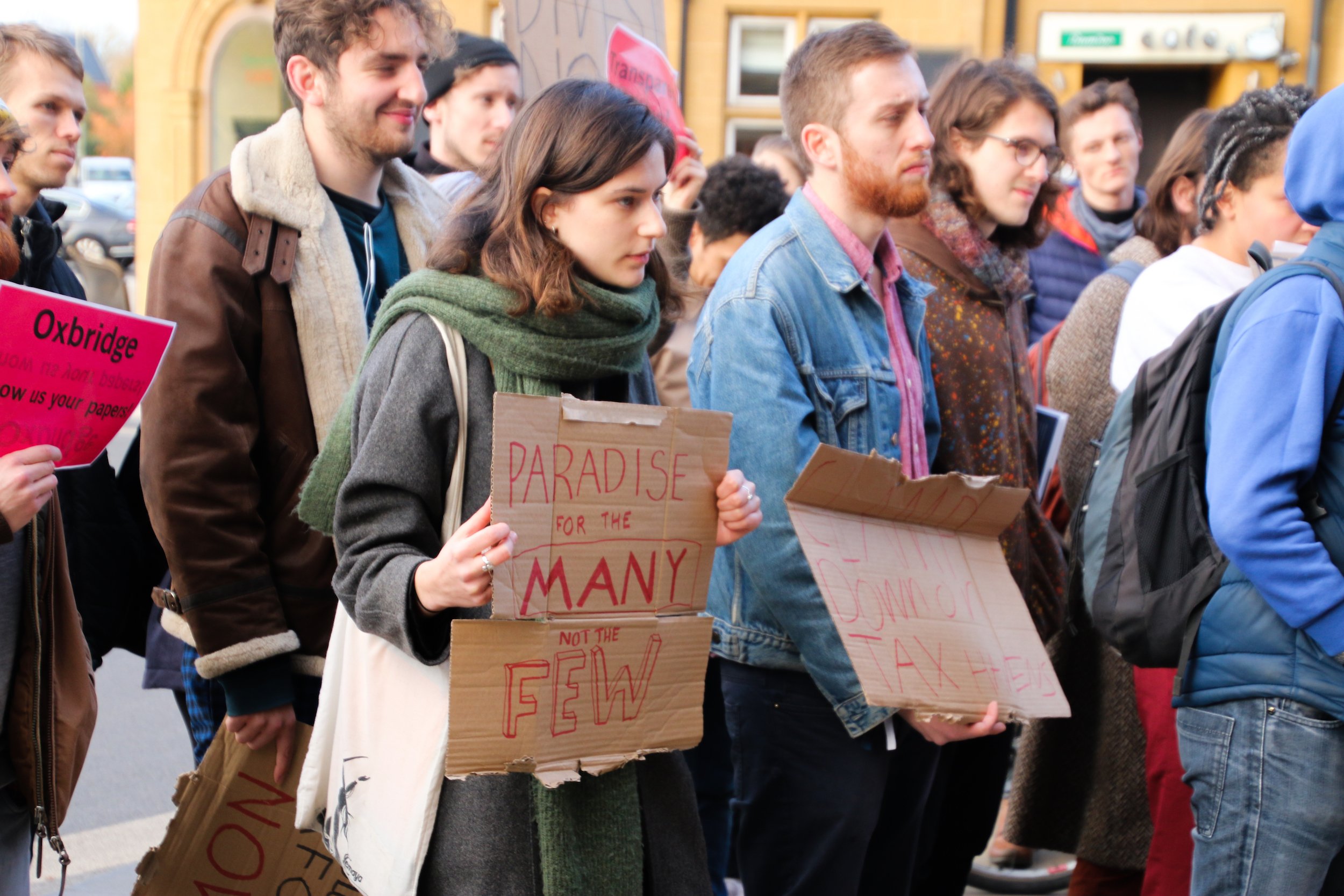Respectful, open discussion is vital to freedom of speech. Everyone should have the opportunity to make their views heard, and everyone’s voice should be valued in the discussion of contentious social issues. These were all points I raised to the 40 attendees of last Wednesday’s ‘Abortion in Ireland’ event hosted by Oxford Students for Life.
Despite this, what happened next was an affront to all of the principles established before the talk took place. Less than one minute into Breda O’Brien’s presentation, a group of protestors jumped to their feet with such ferocity that it was impossible for us to have any form of meaningful enagagement with them.
I was particularly taken aback that fellow students, organised and spearheaded by Oxford SU’s WomCam no less, could employ such a form of protest given how hard we had worked to ensure that any pro-choice attendees would feel like they had the freedom to speak and challenge our guests.
It was a clear affront to the principles that we had so clearly emphasised were invaluable to the discussion. So unprecedented was such a protest, and so blatant was the attempt to deny our speaker her right to freedom of speech, that it was unclear how we should respond.
Attempts were made to vaguely mitigate the circumstances in which we found ourselves. Some of the pro-life women held up signs at the suggestion of Georgia Clarke, our Secretary, proclaiming “I’m a woman, where’s my right to speak?” and “Is this what dialogue looks like?” Breda tried to communicate by writing a message to the protestors on the projector screen, but even this form of speech was ignored as protestors blocked the projector and relentlessly contin- ued their chanting from the front.
Freedom of speech is not just some abstract, nebulous concept to be discussed by political philosophers in their ivory towers. Rather, it is a necessary protection, a fundamental right enshrined in law and international obligations such as the Universal Declaration of Human Rights.
Such legal protection is essential for enabling the existence of groups like Oxford Students for Life. We exist to create a space in which questions about the beginning and end of life can be discussed in a respectful and open environment. We come at the issues from a pro- life perspective, and aim to foster dialogue and share views which are often unheard. Safeguarded by Article 19 of the Universal Declaration of Human Rights, we have every right to “impart information and ideas” and that is exactly what we hoped to do on Wednesday evening.
Our beliefs may be considered radical, but so have many beliefs at some time that we now consider nor- mal. Repealing Section 28 was seen as radical. Votes for women, a concept which is now assumed by all as a fundamental right was one of the most divisive debates of the 20th century. The idea of freedom of speech can sometimes be reduced to empty rhetoric due to overuse, but it is vital to democracy and progressive movements. The belief that human life should be protected from conception to natural death may currently be considered radical, but that doesn’t mean it has any less of a right to be heard.
Despite the portrayal of the pro-life movement as extreme and out of touch with public opinion, a recent ComRes Poll shows that among 18- 24 year olds, 59% would like to see the 24-week limit period reduced, while only one percent would which to see it extended to birth. Such statistics would imply that there is still much discussion to be had on the question of abortion and that the debate is by no means over.
Moreover, the upcoming referendum in Ireland and the current push for decriminalisation in the UK means that it is as important as ever that the right to free speech on issues such as abortion is not infringed. WomCam says the question “is not up for debate”, but if our MPs are to debate the matter in Parliament, then the right of citizens to discuss it must be upheld. To suggest otherwise would be to set a dangerous and worrying precedent, where the established view would become unquestioned. History tells us that for progress to be made, the opposite must be done with increased fervour.
Given the protesters’ agrant disregard for freedom of speech, the committee and I were astonished and deeply disturbed when the Oxford SU put out a statement the next day endorsing the protest.
In their statement following the protest, the SU wrote: “Oxford SU is an organisation dedicated to representing the interests of Oxford students.” Yet the SU attempted to deny the right to free speech to the very students they claimed to represent, and this paradoxical sentiment should be viewed with a highly critical eye.
WomCam of course have a right to freedom of expression and protest. But all would do well to remember that a right to freedom of speech does not mean the right to prevent other people from speaking.
Anna Branford is Co-President of OSFL (Oxford Students for Life)





